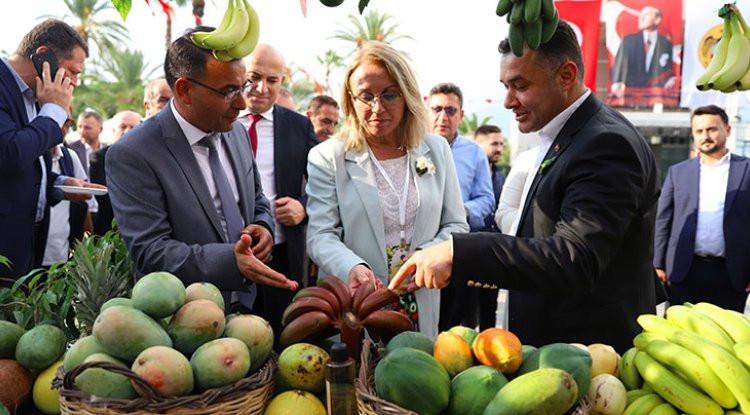Türkiye grows seven tropical fruits, eyes four other
Meltem Özgenç - ANTALYA

Türkiye has started growing seven tropical fruits brought from the United States, officials have said, adding that the adaptation process of some four other fruits is ongoing.
Tropical fruit cultivation, which started with materials brought from abroad for hobby gardens in the early 2000s in Türkiye, has started to increase with the contribution of local saplings.
Within the scope of a project initiated by the General Directorate of Agricultural Research and Policies (TAGEM) with the Western Mediterranean Agricultural Research Institute (BATEM) and Akdeniz University in 2012, the Agriculture and Forestry Ministry brought a total of 11 varieties of pitaya, passiflora, mango, longan, litchi and guava from the U.S.
Adaptation studies of these varieties were carried out in open-air conditions in Antalya’s Gazipaşa district, concluding that these species can be cultivated in the region.
In this regard, BATEM registered one passiflora and two pitaya varieties in 2018 and one mango, one longan and two litchi varieties in 2020, and offered them to the industry.
With the contribution of these registered varieties, many tropical fruit orchards in the Mediterranean and Aegean regions, such as passiflora, pitaya and mango, have begun to be established.
Production is mostly carried out in greenhouses as tropical fruits are generally damaged at temperatures below 4-5 degrees Celsius (39-41 degrees Fahrenheit).
While pitaya, which is mostly grown under cover, was grown in an area of around 3,000 decares last year. The production area is expected to increase further this year.
Passiflora, on the other hand, is grown in an open field; produced over 1,000 decares of land in Türkiye.
The cultivation of mango, which is one of the tropical fruits most suitable for the taste of Turks, continues with an increasing momentum. The first harvest in commercial mango orchards established in 2019 started this year.
Pitaya, passiflora and mango are offered for sale in supermarkets, chain markets and partially open-air markets in Türkiye. In addition, these fruits are also exported, albeit a little.
With the projects carried out by BATEM, the efforts to bring and adapt varieties belonging to coffee, carambola, sapodilla, mamey sapote, black sapote, soursop, cherimoya and wampee continues.
In the first half of 2022, tropical fruit exports were $7.9 million, said Hayrettin Uçak, the head of the Aegean Fresh Fruit and Vegetable Exporters’ Association (EYMSİB). He added that the country’s exports leaped 225 percent between 2018 and 2021.
“In 2020, Türkiye exported tropical fruits to around 60 countries, but last year the number of those countries rose to 83,” he said.
Uçak predicts that revenues from tropical fruit export may reach $20 million in 2022.
The range of produce local growers sell abroad also expanded to include papaya, mango, pineapple, dragon fruit, coconut, passion fruit and bilberry, he added.
















